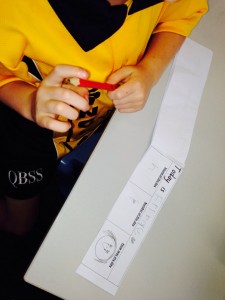Hello Prep R Families,
Most families would have noticed an extra exercise book in their child’s homework folder. This book contains the Magic Words that we are working on. The students can write in the book but please start writing from the back as the first fifteen or so pages will be used to glue in the word charts. Below is a further explanation about the Magic Words program that we use. If your child has not returned their homework folder throughout this week they will not have received their Magic Words Book. Return homework folder by Friday.
“In English there are 100 frequently occuring words that make up, on average, half of all the words used in reading and writing.
The first 12 most frequently occurring words appear so often they make up on average, one quarter or one in every four words. The next 20 most commonly used words together with the first 12 words (32 words) make up, on average, one third of all words in reading and writing. The remaining 68 most frequently occurring words (100 words), make up the 100 most important words in learning to read, as they account for one half or one in every two words, on average, that we use in reading and writing.
The 100 Most Important Words in learning to read and write are the Magic 100 Words.
The first 12 Words are known as the 12 Golden Words, followed by the 20 Red Words and then the Blue Words, Green Words, Orange Words, Indigo Words and Violet Words, making up the Magic 100 Words. These seven levels contain the 100 most frequently used words in English and are coloured according to the colours of the rainbow.” Copied from the Magic 100 website – https://www.magicwords.com.au/information/learning-to-read
I’m sure you will have many questions about the Magic 100 throughout the year, please don’t hesitate to ask.
From,
Miss Richards

